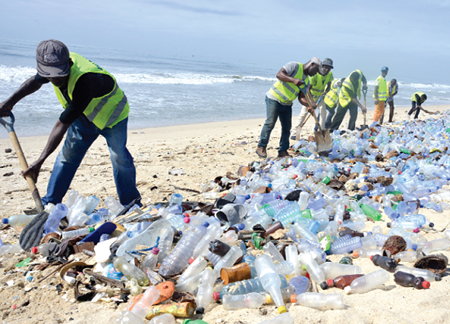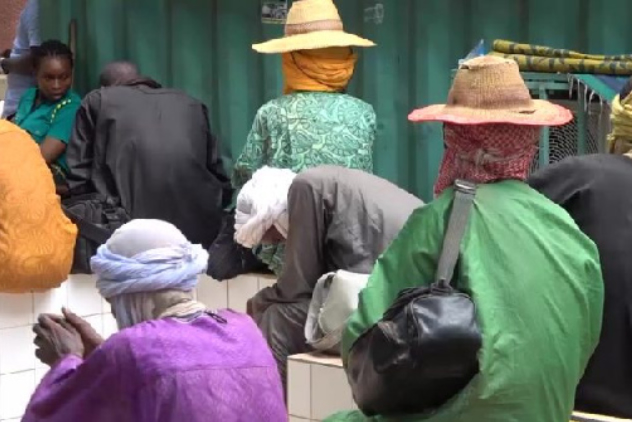Stop Dumping Refuse Into Water Bodies – CCFC
- Home
- Stop Dumping Refuse Into Water Bodies – CCFC

Stop Dumping Refuse Into Water Bodies – CCFC
 The Christian Children’s Fund of Canada (CCFC) on Wednesday advised citizens to stop disposing refuse into water bodies especially in the rural areas to avoid contamination and reduce health risk.
The Christian Children’s Fund of Canada (CCFC) on Wednesday advised citizens to stop disposing refuse into water bodies especially in the rural areas to avoid contamination and reduce health risk.
This, it said, would help promote good drainage system and offer clean water in various water sources in the rural areas for consumption.
It said most water sources in communities were polluted with filthy drains filled with plastics and garbage, leading to the increase in the use of chemicals to treat water with the resultant high cost of water for consumption.
The CCFC gave the advice at a durbar organised by Markaz Al Bishara (MAB) at Gbanyamini, a community in the Tamale Metropolis, to celebrate the World Water Day 2019, on the theme: “Leave Nobody Behind”.
Mr George Baiden, the Country Director of CCFC in a speech read on his behalf said CCFC and its partners were mindful of the important role water played in the lives of women and children and were striving to ensure that no one was left behind in terms of both access and quality of water.
“For us and many development organisations, this World Water Day, which fell on 22nd March, is about tackling the water crisis by addressing the reasons why so many people were left behind” he said.
Mr Baiden said CCFC was also aimed at sensitising communities in the important role the community members had to play to ensure that the little water they had was protected through proper sanitary measures.
He said public awareness and empowerment of communities was critical to enable their human rights to water and sanitation to be realised.
Mr Baiden said statistics had shown that about 1.8 billion people had no access to clean and safe drinking water and sanitation, and over 700 children under five years died every day from diarrhea linked to unsafe water and poor sanitation.
He said over 800 women die every day from complications in pregnancy and childbirth and measures ought to be put in place to curb the situation.
Madam Gyan-Bassaw Patricia, the Programmes Manager of MAB said the Gbanyamini community was one of the communities where MAB with support from CCFC made significant contributions to provide access to portable water especially for women and children.
She said access to water was a basic human right and that everyone needed water in order to survive and support their well-being and advised the community members to maintain good hygiene by treating the water they consumed.
Mr Issah Abdulai, Environmental Health Director at the Sagnarigu Municipality advised the community members to clean their homes and surroundings and drain away stagnant waters.
He also advised them to make sure their households had toilet facilities to stop open defecation and encourage the habit of hand washing with soap to ensure a healthy life.
Source: GNA
- Share
Classic Ghana
Classic Ghana brings you into a fun world of arts, entertainment, fashion, beauty, photography, culture and all things in between. Let’s explore these together!







